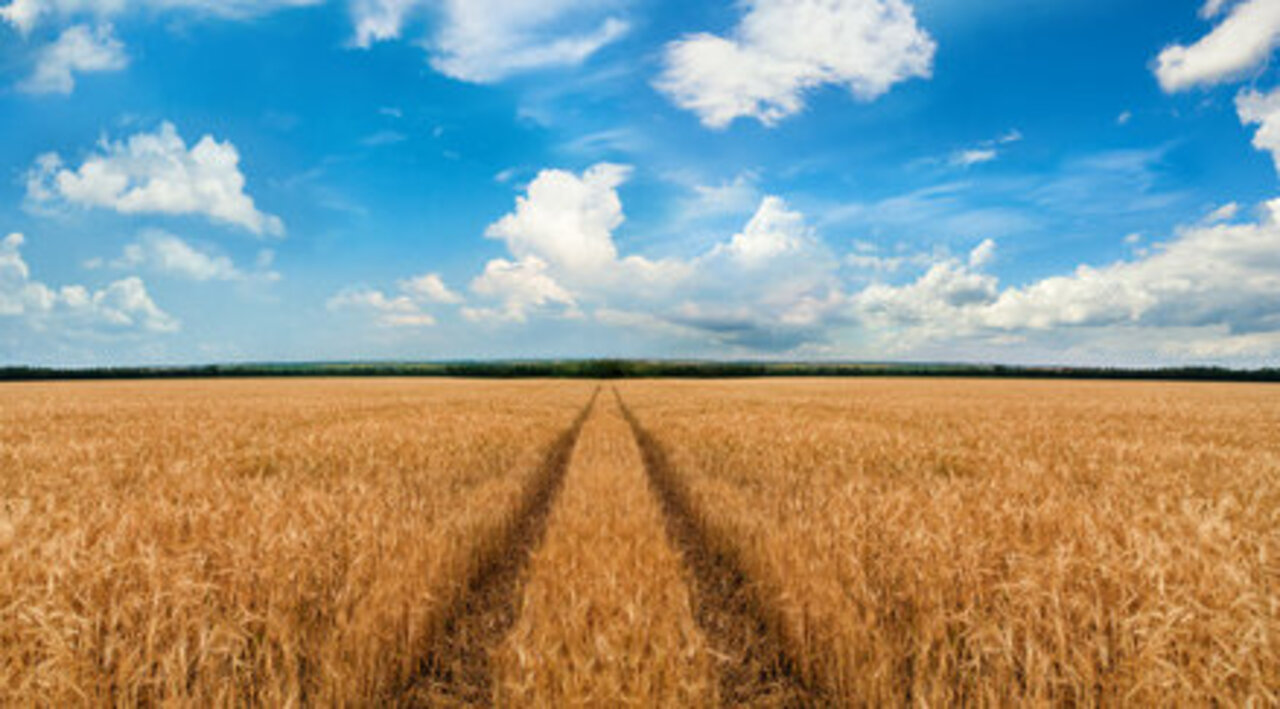Project
Crop: production systems und their economics

Economics of arable farming (national, international, international competitiveness, agri benchmark, policy impact assessment) incl. expansion of national and international networks
Policy makers very often are faced with the challenge to access the implications of changes in the political, legal or technological framework conditions on arable production. This may for example referr to the ban of individual crop protection products. This project is providing ready-to-use answers to such questions - both on the national as well as on the international level.
Background and Objective
Provision of analysis regarding competetivnes of cash crop farming with special emphasis on agricultural and environmental policy, technological options and changes in ag trade policy. This way policy makers will be enabled to better assess the implications of interventions to political goals with regard to agriculture, technology and trade.
Approach
Based on an intensive exchange with decission makers in policy, agriculture and agribusiness relevant topics are identified.
Data and Methods
This project is based on farm economics figures which are being generated in the course of agri benchmark Cash Crop. This data is used to calculate the economics of (a) crop-specific production systems and/or respective farms.
Preliminary Results
Stute F, Witte T de, Volckens F (2016) Internationale Wettbewerbsfähigkeit deutscher Ackerbaubetriebe. SchrR Rentenbank 32:137-162
Lütkenhaus S, Deike S, Witte T de (2016) Was "kosten" Leguminosen? DLG Mitt 131(12):26-28
Thünen-Contact

Involved Thünen-Partners
Duration
Permanent task 1.2006 - 12.2025
More Information
Project status:
ongoing
Publications to the project
- 0
Wüstemann F, Witte T de (2022) Was "kosten" die neuen GAP-Regeln? DLG Mitt(2):30-34
- 1
Röder N, Dehler M, Jungmann S, Laggner B, Nitsch H, Offermann F, Reiter K, Roggendorf W, Theilen G, Witte T de, Wüstemann F (2021) Ausgestaltung der Ökoregelungen in Deutschland - Stellungnahmen für das BMEL : Band 1 - Abschätzung potenzieller ökologischer und ökonomischer Effekte auf Basis der Erstentwürfe. Braunschweig: Johann Heinrich von Thünen-Institut, 76 p, Thünen Working Paper 180, Band 1, DOI:10.3220/WP1633603709000
- 2
Röder N, Dehler M, Laggner B, Offermann F, Reiter K, Witte T de, Wüstemann F (2021) Ausgestaltung der Ökoregelungen in Deutschland - Stellungnahmen für das BMEL : Band 2 - Schätzung der Inanspruchnahme der Regelungen auf Basis des Kabinettsentwurfes des GAPDZG. Braunschweig: Johann Heinrich von Thünen-Institut, 46 p, Thünen Working Paper 180, Band 2, DOI:10.3220/WP1633603747000
- 3
Wilhelm R, Bartsch D, Consmüller N, Witte T de, Ehlers U, Feike T, Gocht A, Hartung F, Kahrmann J, Kehlenbeck H, Leggewie G, Lehnert H, Ordon F, Sprink T, Beer H, Bloem EM, Hausmann J, Flachowsky H, Gathmann A, Jacobs A, et al (2021) Bericht zu möglichen Synergien der Nutzung neuer molekularbiologischer Techniken für eine nachhaltige Landwirtschaft. Quedlinburg: JKI, 123 p, Ber Julius Kühn Inst 215, DOI:10.5073/20211215-094810
- 4
Böhm H, Dauber J, Dehler M, Amthauer Gallardo DA, Witte T de, Fuß R, Höppner F, Langhof M, Rinke N, Rodemann B, Rühl G, Schittenhelm S (2021) Crop rotations with and without legumes: a review [online]. 37 p Legume Translated Practice Guide 1, zu finden in <www.legumehub.eu> [zitiert am 08.12.2021]
- 5
Isermeyer F, Nieberg H, Banse M, Bolte A, Christoph-Schulz IB, Dauber J, Witte T de, Dehler M, Döring R, Elsasser P, Fock HO, Focken U, Freund F, Goti L, Heidecke C, Kempf A, Koch G, Kraus G, Krause A, Kroiher F, Lasner T, Lüdtke J, Olbrich A, Osterburg B, Pelikan J, Probst WN, Rahmann G, Reiser S, Rock J, Röder N, Rüter S, Sanders J, Stelzenmüller V, Zimmermann C (2020) Auswirkungen aktueller Politikstrategien (Green Deal, Farm-to-Fork, Biodiversitätsstrategie 2030; Aktionsprogramm Insektenschutz) auf Land- und Forstwirtschaft sowie Fischerei. Braunschweig: Johann Heinrich von Thünen-Institut, 102 p, Thünen Working Paper 156, DOI:10.3220/WP1600775202000
- 6
Böhm H, Dauber J, Dehler M, Amthauer Gallardo DA, Witte T de, Fuß R, Höppner F, Langhof M, Rinke N, Rodemann B, Rühl G, Schittenhelm S (2020) Fruchtfolgen mit und ohne Leguminosen: ein Review. J Kulturpfl 72(10-11):489-509, DOI:10.5073/JfK.2020.10-11.01
- 7
Balieiro S, Witte T de, Lehnberger A (2019) International competitiveness of value chains for sugar beet and sugarcane: a combined approach to estimate production and processing costs in Brazil and Germany. Sugar Ind 144(8):444-450
- 8
Witte T de (2019) Wirtschaftliche Perspektiven autonomer Kleinmaschinen im Ackerbau. J Kulturpfl 71(4):95-100, DOI:10.5073/JfK.2019.04.04
- 9
Witte T de (2018) Lohnt sich die Feldbewässerung? Getreide Mag 24(2):54-58
- 10
Witte T de, Meyer K (2017) Alternativen zum Stoppelweizen. Ratg Pflanzenbau Techn:4-5
- 11
Witte T de, Dehler M (2017) Die Suche nach Plan B. DLG Mitt 132(9):15-21
- 12
Schulte M, Witte T de, Kühlmann T, Theuvsen L (2017) Ökonomische Bewertung eines Glyphosatverzichts auf einzelbetrieblicher Ebene. Jb Österr Gesellsch Agrarökon J Austrian Soc Agric Econ 26:147-156, DOI:10.24989/OEGA.JB.26.16
- 13
Volckens F, Stute F, Witte T de (2016) Chicago vor dem Hoftor. Agrarmanager 27(9):30-33
- 14
Stute F, Witte T de, Volckens F (2016) Internationale Wettbewerbsfähigkeit deutscher Ackerbaubetriebe. SchrR Rentenbank 32:137-162
- 15
Witte T de, Volckens F, Stute F (2016) Internationale Wettbewerbsfähigkeit deutscher Ackerbaubetriebe. Agra Europe (Bonn) 57(37):D1-13
- 16
Lütkenhaus S, Deike S, Witte T de (2016) Was "kosten" Leguminosen? DLG Mitt 131(12):26-28
- 17
Menghi A, Roest K de, Porcelluzzi A, Deblitz C, Davier Z von, Wildegger B, Witte T de, Strohm K, Garming H, Dirksmeyer W, Zimmer Y, Bölling D, van Huylenbroek G, Mettepenningen E (2015) Assessing farmers' cost of compliance with EU legislation in the fields of environment, animal welfare and food safety. Bruxelles: European Commission
- 18
Walther S (2014) Determinants of competitiveness of agriholdings and independent farms in Ukrainian arable production . Braunschweig: Johann Heinrich von Thünen-Institut, 230 p, Thünen Rep 15, DOI:10.3220/REP_15_2014
- 19
Röder N, Osterburg B, Schmidt TG, Witte T de, Golla B (2014) Greening der GAP - Inhalt, Relevanz und Wechselwirkungen. Loccumer Prot 2014,05:89-109
- 20
Witte T de, Latacz-Lohmann U (2014) Was kostet das Greening? Top Agrar(4):36-41
- 21
Zimmer Y (2013) Isoglucose - how significant is the threat to the EU sugar industry? Sugar Ind 138(12):770-777
- 22
Hu X, Zimmer Y (2012) Farm economics behind the evolution of Chinese rapeseed production. Int J Agric Manag 2(1):1-8
- 23
Zimmer Y (ed) (2011) Cash crop report 2011 : understanding agriculture worldwide. Braunschweig: vTI, 95 p
- 24
Zimmer Y (ed) (2010) Cash crop report 2010 : benchmarking farming systems worldwide. Braunschweig: vTI, 87 p
- 25
Zimmer Y (2010) Latin America: Also in future the powerhouse in soybeans. In: Zimmer Y (ed) Cash crop report 2010 : benchmarking farming systems worldwide. Braunschweig: vTI, pp 14-19
- 26
Plankl R, Weingarten P, Nieberg H, Zimmer Y, Isermeyer F, Krug J, Haxsen G (2010) Quantifizierung "gesellschaftlich gewünschter, nicht marktgängiger Leistungen" der Landwirtschaft. Braunschweig: vTI, 162 p, Arbeitsber vTI Agrarökonomie 2010/01
https://literatur.thuenen.de/digbib_extern/bitv/dk043125.pdf
- 27
Zimmer Y (ed) (2009) Cash crop report 2008 : benchmarking farming systems worldwide. Braunschweig: vTI, 70 p
- 28
Zimmer Y (ed) (2009) Cash crop report 2009 : benchmarking farming systems worldwide. Braunschweig: vTI, 91 p
- 29
Zimmer Y (2007) Cash crop report 2006 : benchmarking farming systems worldwide. Braunschweig: FAL, 49 p
- 30
Zimmer Y (ed) (2007) Cash crop report 2007 : benchmarking, farming systems worldwide. Bonn: UFOP








